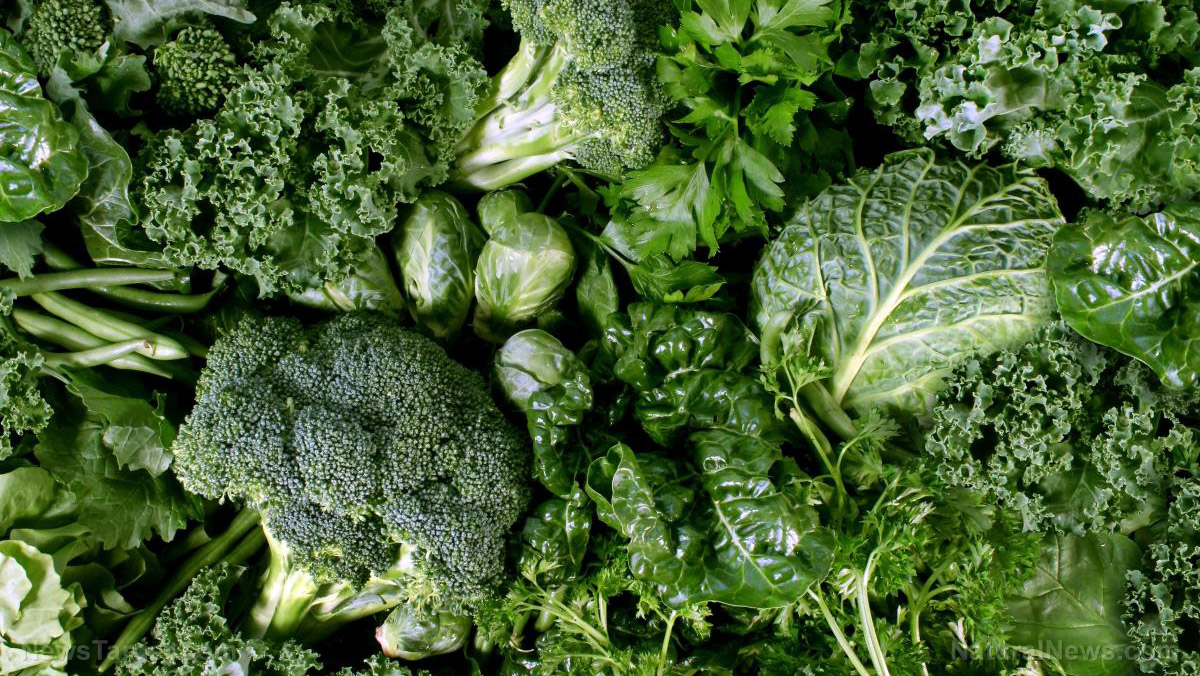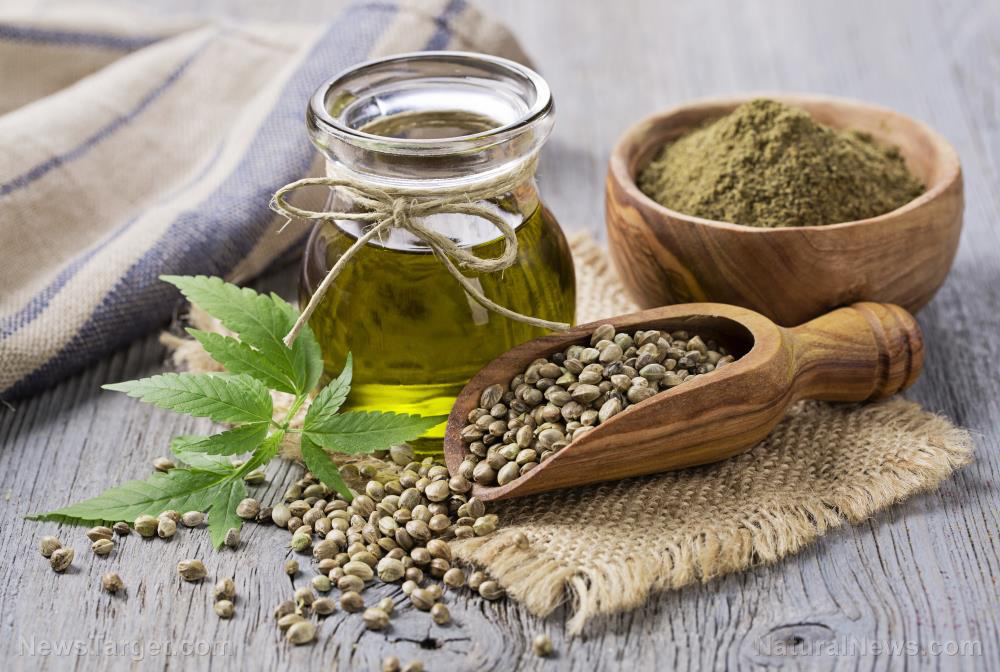Just ONE serving of greens per day helps delay brain aging by over a decade
08/22/2019 / By Janine Acero

Aging causes a lot of unwanted health issues, most notably cognitive decline and memory loss. People in their 50s are told that nothing can be done about it. But is decreased brain function really an inevitable part of aging?
New research from Rush University Medical Center in Chicago suggests that a simple step can be taken to prevent and reverse age-related cognitive decline. Researchers found that eating one serving of green leafy vegetables a day can slow brain aging by a decade. Meanwhile, eating two servings produces even better results.
“Adding a daily serving of green leafy vegetables to your diet may be a simple way to help promote brain health,” said study author Martha Clare Morris, a nutritional epidemiologist at Rush.
“There continues to be sharp increases in the percentage of people with dementia as the oldest age groups continue to grow in number. Effective strategies to prevent dementia are critically needed.”
Flavonoids found in leafy greens slow cognitive decline
The Rush researchers investigated the effects on cognitive decline of the primary nutrients found in leafy greens, such as: folate (vitamin B9), alpha-tocopherol (vitamin E), phylloquinone (vitamin K1), lutein, beta-carotene, nitrate, and kaempferol.
For their study, they recruited 960 older adults aged 58 to 90 from the Rush Memory and Aging Project, which began in 1997. The participants were part of Chicago-area retirement communities and residents of senior public housing complexes.
The researchers divided the participants into five groups based on how often they ate leafy greens. Each participant answered a food frequency questionnaire and underwent cognitive assessments for a mean period of 4.7 years.
The researchers then compared the cognitive assessments of participants with the highest (an average of about 1.3 servings per day) and lowest vegetable intake (0.1 servings per day). They took into account age, sex, education, cognitive activities, physical activities, smoking, seafood consumption and alcohol intake and adjusted their data accordingly.
The researchers found that consumption of green leafy veggies is associated with slower cognitive decline. Participants with high vegetable intake showed a slower rate of decline than those with low vegetable intake. The difference in decline rate was equivalent to being 11 years younger in age, reported the researchers.
Based on their findings, the Rush researchers concluded that high daily intake of green leafy vegetables, or any foods rich in phylloquinone, lutein, nitrate, folate, alpha-tocopherol, and kaempferol, can help slow age-related cognitive decline.
Food for the brain
Diets that include high amounts of vegetables, such as leafy greens and colorful veggies, and flavonoid-rich fruits like citrus and berries, have been linked to the prevention and improvement of age-related dementia. In fact, studies show that the consumption of green leafy vegetables like spinach, kale, collards and lettuce can significantly slow down age-related cognitive decline. (Related: Peppers, berries, leafy greens: What to eat to protect your brain from dementia, Parkinson’s.)
While researchers have yet to discover which nutrients in leafy greens are responsible for this effect, it has been suggested that the combination of different phytochemicals, not specific nutrients, is what provides brain-boosting benefits.
That said, some studies show that the individual components of plant-based foods also have protective effects against cognitive decline. High intake of folate, beta-carotene, lutein and phylloquinone is said to protect against dementia. However, all of these nutrients have different mechanisms of action, suggesting that their synergistic effect is what slows down brain aging.
Sources include:
Submit a correction >>
Tagged Under:
age-related cognitive decline, aging, aging secrets, alpha tocopherol, alternative medicine, Alzheimer's disease, anti-aging, anti-aging science, beta carotene, brain aging, brain boosters, brain function, brain health, brain nutrients, cognitive decline, cognitive function, cognitive health, collards, dementia, disease treatments, flavonoids, folate, food cures, food is medicine, Fresh, funtional food, kaempferol, kale, Leafy greens, longevity, lutein, memory loss, men's health, natural cures, natural medicine, nitrate, nutrients, organics, phylloquinone, phytonutrients, prevention, remedies, research, spinach, Veggies, vitamin B9, vitamin E, vitamin K1
This article may contain statements that reflect the opinion of the author
RECENT NEWS & ARTICLES
BrainNutrients.News is a fact-based public education website published by Brain Nutrients News Features, LLC.
All content copyright © 2018 by Brain Nutrients News Features, LLC.
Contact Us with Tips or Corrections
All trademarks, registered trademarks and servicemarks mentioned on this site are the property of their respective owners.





















